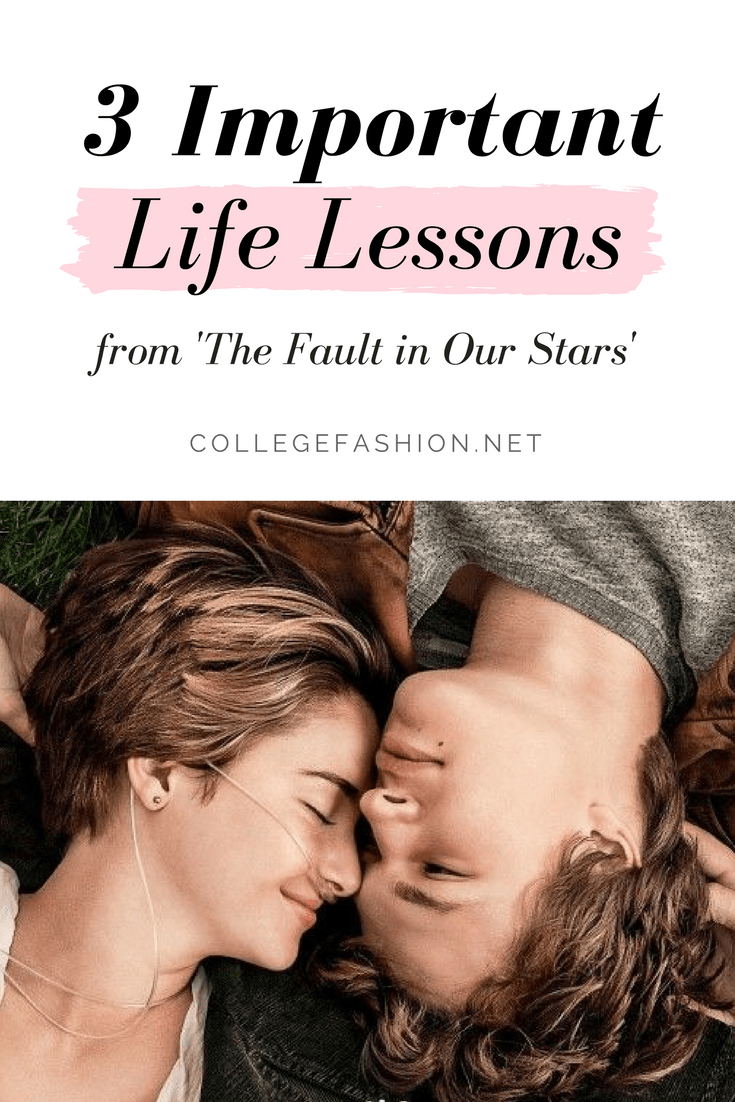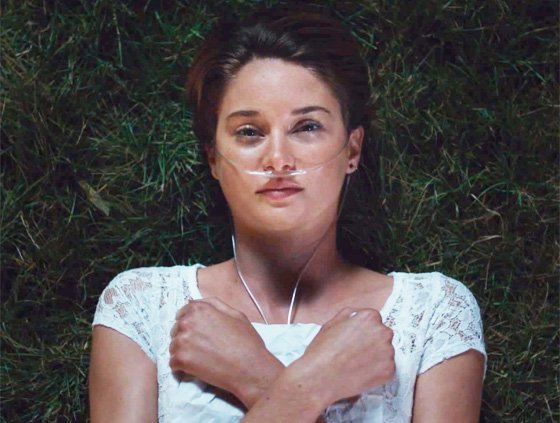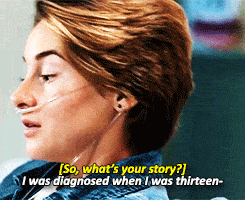
Take a Movie’s Advice is a weekly column attempting to discover the similarities between our favorite movies and real life. Grab some popcorn, sit back, and enjoy the show.
Imagine this: it’s a hectic Sunday night as you’re scrambling to finish the last few lines of your research paper. You glance over at your colorful monthly planner, narrowing your eyes at upcoming events and tasks, wondering when you will have the time to finally check those items off your growing list. You think to yourself, “I might as well just cancel everything non school-related at this point.”

In the midst of our busy lives, it’s easy to get swept up in the day-to-day. That one thing – a quiz you spent all night studying for, a short speech you had to give at a program dinner, or even a group project that’s been lingering in the back of your mind – may be significant in the moment, but when you consider other factors, it might not be that significant at all.
While it’s beneficial to focus on the smaller details, when we do this too much, we can lose sight of what’s truly important to us.
The solution? We all need to take ourselves off of autopilot and brush up on our skills for approaching life. And who better to learn from than Hazel Grace Lancaster and Augustus “Gus” Waters from The Fault in Our Stars? Here are three important skills we learned from the film.

Table of Contents
About the Movie
Based on the novel of the same name, The Fault in Our Stars is a 2014 romantic drama film centered around Hazel Grace Lancaster (Shailene Woodley), a witty teenager who has a cynical outlook on life. After developing terminal thyroid cancer that has spread to her lungs, Hazel’s parents encourage her to attend weekly cancer patient support groups to help her cope and make friends.

There she meets Augustus Waters (Ansel Elgort), a charming guy who fears oblivion and has a goal of making his mark on the world. While he underwent surgery and is cancer-free, Augustus attends the weekly session to support his best friend Isaac (Nat Wolff). The two begin to hang out and upon discovering their mutual love for books, Hazel recommends An Imperial Affliction, a novel centered around a girl named Anna who has a rare type of blood cancer.
Angered by the abrupt ending of the novel, Augustus contacts author Peter Van Houten in order to learn more about the book’s ambiguous conclusion. This prompts a journey to Amsterdam, the beginning of young love, discoveries, and surprising revelations.
(Want to watch the film adaptation before reading future? Check it out here. Interested in reading the novel instead? Find John Green’s book here.)
Here are the three most important life skills this iconic film taught us:
1. Don’t pretend that you’re okay.
“That’s the thing about pain – it demands to be felt.”
There are two main ways that humans approach upsetting situations. Some of us release our anger and frustration right in the moment. Some of us, however, bottle up our emotions and attempt to deal with problems on our own.

In the film, Hazel tends to fall into the latter camp. She has spent most of her life in a bubble and has learned to hide her struggles in order to protect those around her. However, as she gets to know Augustus, she learns that you don’t always have to put up a façade, and that it’s okay to not be okay.
While it’s great to understand others’ feelings and emotions, it’s equally important to receive empathy yourself. Forget the days of automatically responding, “It’s fine” or “I’m fine.” Let others in and effectively communicate with them when you’re facing a tough challenge. You might be surprised at how much their support will help.
2. Channel your inner curiosity and learn from others.
The world is full of fascinating people just waiting to teach you something new. All you have to do is listen. In college, we’re constantly exposed to new people with differing perspectives from our own. If we listen to them, we can gain a broader understanding of the world around us.

Upon meeting Hazel, Augustus shares his desire to lead an extraordinary life. Armed with an unlighted cigarette (it’s a metaphor), his fiery spirit encourages a hesitant Hazel to travel and embrace the unknown. Had she dismissed him, she might never have tried so many new things.
3. Remember: No single factor defines you.
A notable theme expressed throughout the film is that an individual is not defined by his or her illness. Hazel becomes accustomed to telling others her “cancer story” when she first meets them (including when she was first diagnosed, what type of treatment she’s currently using, etc.). However, this is only a small part of who she is.

Though you (hopefully) aren’t facing a disease like Hazel’s, you may feel you are automatically “defined” by other things in life. Your college major is an example.
I’m sure you have some ingrained stereotypes about the people who choose different college majors. And it’s only natural: Certain fields of study are praised in news outlets and pop culture, while others are ridiculed or even shamed. It’s common to feel pressure to choose the “right” major, and it’s also common to judge others by the major they choose.
At the end of the day, though, your path is your choice and you should study what interests you. And it’s important to extend this compassion to others. College is not just about choosing the major that will make you the most money, or win you the most status points, in the long term.
Besides, no matter the major, college is tough on all of us. We all have our share of late night study sessions, challenging research projects, and difficult lectures. Shedding automatic assumptions will leave you with more natural connections and better comprehension of your peers’ situations.
Thoughts?
What are some ways you empathize with your friends? Do you have any additional tips? What movie do you want to watch next? Start the conversation – comment below!
And for more on The Fault in Our Stars, be sure to see our posts on fashion from the movie and fashion from the book.
